We're publishing this interesting blog contributed by Lyndsey Burton from Choose.co.uk - moderator
For those who value the presence of an ethical alternative to the Big Four, the announcement that the Co-operative Bank was putting itself up for sale must have initially made for some alarming news. At a time when RBS are being accused of forcing small businesses to fail, when former HBOS bankers are being jailed for bribery and fraud, and when Barclays have been fined for their part in the Libor-rigging scandal, it’s clear that an ethical alternative is needed now more than ever. Yet given the Co-operative’s announcement, and given that it may very well become a subsidiary of a bigger high street bank, it now seems that one of the few remaining vestiges of ethical banking is under threat.
However, while February 13th’s announcement might initially suggest that the Co-operative Bank’s commitment to ethical banking is perhaps in danger, a potential sale does in fact represent a golden opportunity for it to strengthen this commitment. This is because, far from the bank’s current situation being the result of ethical banking, the bank wouldn’t have needed to put itself on the market if it hadn’t deviated from its principles on too many past occasions.
For example, in 2009, it completed the ill-fated merger with the Britannia building society, a merger that “should probably never have happened,” according to Sir Christopher Kelly’s independent report into the bank’s subsequent near-collapse. As the former British Civil Servant put it, the success of the merger was fatally undermined by irresponsibility and incompetence on the part of the Co-operative Bank’s “executive management”, who “failed to exercise sufficiently prudent and effective management of capital and risk.”
Put differently, then-CEO Neville Richardson and other senior figures failed to take sufficient account of the sizeable problems and challenges presented by Britannia, including a “substantial volume of assets well outside [the Co-operative’s] risk appetite in terms of type, loan-to-value or concentration risk.” Worse still, Kelly also criticised Richardson and others for the bank’s “legacy of mis-selling payment protection insurance (PPI), which was not unusual at the time, but is particularly disappointing for an ethical bank.”
This episode goes to show that, in its recent past, the Co-operative Bank was unfortunately no stranger to unethical banking. Added to this, it also goes a long way to explaining why the bank had be bailed out by American hedge funds in 2013, as a result of a £1.5 billion deficit in its balance sheet. Yet things sadly didn’t stop with the botched merger, for in January 2016, former executives Barry Tootell and Keith Alderson were banned by the Prudential Regulation Authority (PRA) from holding senior financial positions.
The PRA said that, between July 2009 and May 2013, Mr Tootell “was centrally involved in a culture within the Co-op Bank which encouraged prioritising the short-term financial position of the firm at the cost of taking prudent and sustainable actions to secure the firm's longer-term capital position.”
He stepped down in May 2013 after the credit-rating agency Moody’s downgraded the bank’s debt to “junk” status, yet the non-ethical behaviour didn’t stop with him. The bank’s Chairman at the time — Paul Flowers — also resigned a month later when it emerged that he’d been making “excessive” use of company expenses, during a period when the bank was teetering on the brink of disaster. Of course, by then his departure came too late, for the bank had already been acquired by the American hedge funds, shrinking the Co-op Group’s stake in it to 30% (it’s now 20%).
And if one thing becomes apparent from February 13th’s announcement, it’s that the bank hadn’t really ever recovered from the Britannia takeover and the shocks of 2013, which were largely the result of less-than ethical management practices. Because of these practices, it still remains loss-making to this day, which is why it was forced to put itself up for sale.
Yet with the prospect of a sale, the bank has a prime chance to leave behind its tarnished recent history and commit fully to its ethical ideals, which are the only reason it has survived until today and can still count some four million customers. At the moment, no potential buyer has explicitly stepped forward, yet it’s somewhat encouraging to note that sources speaking to the media have suggested that TSB are interested.
While TSB aren’t perfect, they’re one of the few big-name banks to take ethics seriously. This is because, on the one hand, they’re committed to being a local bank who use deposits to provide services to local customers and businesses. On the other, they’re also committed to transparency, engaging in a “Truth and banking” initiative that aims to explain to customers how they make their profits. This may not make them as ethical as the Co-operative Bank (or as ethical as the Co-operative Bank should be in theory), yet it underlines how they’ll most likely be sympathetic enough to Co-op’s mission to preserve the smaller bank’s identity.
What’s more, if the Co-operative take heed of the call they received from the Customer Union of Ethical Banking to seek additional co-operative sources of capital (e.g. from their own customers), and to engage more with their customers, then TSB or any other new owner will be held to greater account when it comes to ethics. They’ll be put under more pressure to act in accordance with the bank’s ethical policy, for fear of losing the special qualities and the customers that have enabled it to survive despite all its recent difficulties. And if their new owner is receptive to such pressures, then their purchase could allow for Co-op Bank to properly right the wrongs of its recent past, and for ethical banking to become a more formidable force on the high street in the years to come.
Lyndsey Burton, founder of Choose.co.uk, a consumer price comparison site covering personal finance in the UK




